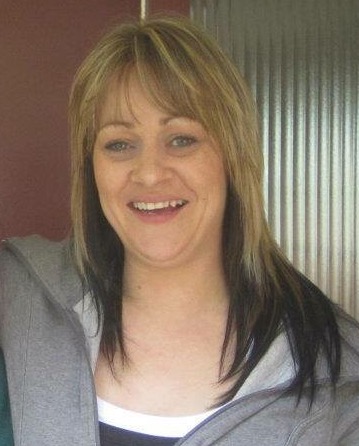- 2018
|
- Runner-Up
|
- Everyday Champion

Charlene Burmeister has been involved in harm reduction work throughout British Columbia for over nine years. She began by volunteering in her home community of Quesnel, helping at-risk people – who would likely not otherwise seek care – access safe, clean supplies and care providers they could trust. Now, she is improving access to respectful care across the province in her role as Provincial Peer Coordinator for the Compassion, Inclusion and Engagement (CIE) initiative.
Charlene believes that the unprecedented number of overdose deaths in BC since 2016 is a direct result of stigma – like the harmful perception of addiction as a personal weakness – that prevents people who use substances from accessing care due to fear. Involving peers (people with lived experience of substance use) in harm reduction policy and planning, and letting them know they are heard and valued, are key to creating change, and Charlene is a leader in building their confidence and capacity. Throughout her work, Charlene advocates for equal treatment and inclusion of First Nations peers and other vulnerable, minority populations.
As part of the CIE team, Charlene has facilitated community dialogues between 77 peers and 98 harm reduction service providers in multiple health authorities. She accomplishes the sensitive task of entering new communities, engaging peers, and forming valuable relationships with them. At the dialogues, peers discuss the challenges they face in accessing care, and providers learn how to adapt their services to better meet the community’s needs. Through the CIE dialogues, peers in many north-western communities are now included in harm reduction committee meetings in their communities. In addition to this work, Charlene has represented the North at many provincial tables, including the most recent Overdose Action Exchange in Vancouver. Charlene brings the rural and remote lens to her provincial work as a member of the Harm Reduction Strategies and Services Committee as well as the Peer Engagement and Evaluation Project (PEEP).
Charlene advocates for peers to be compensated fairly for their participation in harm reduction policy and planning, and supports their involvement even when their circumstances make taking part a challenge. For example, she was committed to bringing a peer who had a disability and multiple health concerns to a recent harm reduction meeting in Vancouver. She coordinated with the airline, the hotel and the peer’s medical provider to ensure a positive travel experience, and that peer is still involved in this work despite her health challenges.
Charlene is working to change the conversation about substance use by amplifying the voices of those most affected – people with lived experience – as an integral part of that conversation. She draws on her own lived experience – including taking part in Northern Health’s Stop Stigma Save Lives campaign – to build empathetic relationships with and between peers and service providers. Her philosophy is “meeting people where they are at,” and her acceptance and compassion help peers find the agency to participate as equals in the harm reduction work BC needs.

